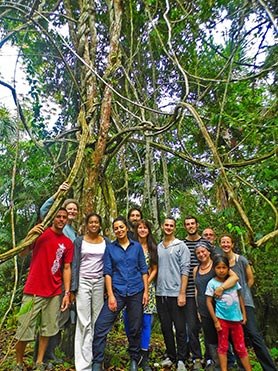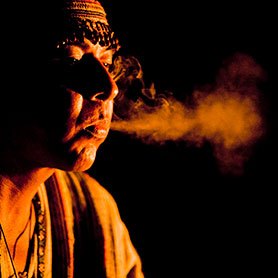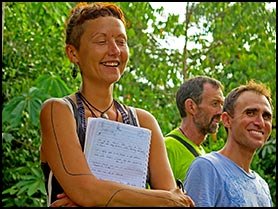

If you’ve ever been to Iquitos, it is a far cry from a modern city like New York, where people’s stress levels are significantly higher, as is pollution and unhealthy living. But even though it is not as harsh as a modern city, Iquitos is still a city, and with motorcars, cars, motorcycles, buses, and trucks driving around everywhere, it is considered a dangerous place by the Mishana, who prefer the peace and calm of the Amazon Rainforest. Looking out onto a grey city street is certainly not as pleasant as looking out onto the jungle and the Nanay river.
Daily life in the Mishana community is slow paced and laid back. Some might say it is easy going, but few city dwellers could survive the manual labor aspects every day living in the jungle. It may not be stressful, but it is by no means easy. A typical day begins with collecting water from the well, fishing, or walking into the jungle to visit a private lot of cultivated land called a chacra. Every family has at least one chacra that provides them with the majority of their food. Some bulk items like rice, oil, sugar, and salt are brought in from a village that has road access to Iquitos, which is a two hour boat ride away from the Mishana Community.
While the Mishanas may not know how to use a computer or send an email, they know how to live off the land. With no electricity in the community, these strong and intelligent people manage to take care of all their needs with very little dependence on anything but their own hands and feet, and a machete or ax. The children are given responsibilities at a young age and while they do not have many toys, if any, they have no problem finding a way to have fun.
During the Ayahuasca Foundation’s retreats, the Mishanas help out in many different ways. Hunters provide wild jungle meat from the surrounding area. Fisherman provide freshly caught fish from the river or nearby lakes. Plantains, yucca, and a variety of fruit are provided from their chacras, and medicinal plants from their gardens and the jungle. Whatever they can do to help out is always done without hesitation and usually with a smile. It is such a pleasure to meet these people and to get to know them, for it is the dream and fantasy of most people to live the way they do, without being dependent on corporations for survival.


